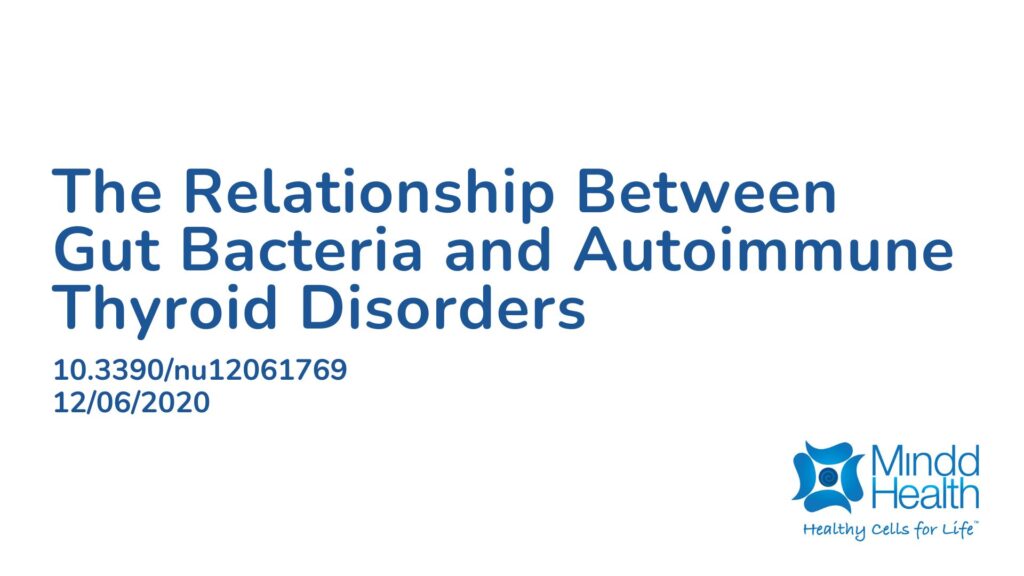Summary:
Humans coexist with trillions of gut bacteria, most concentrated in the colon. Their composition varies with geography, genetics, birth method, infant feeding, diet, medications, and environment. The microbiota matures by age three but remains adaptable throughout life. Gut bacteria support vitamin production, fiber digestion, immune regulation, and neurological health. Fiber-rich and probiotic foods promote diversity, whereas high-fat, high-sugar diets disrupt it. Fermentation of fibers produces short-chain fatty acids that fuel intestinal cells, regulate immunity, and reduce inflammation. This study examined links between gut microbiota and autoimmune thyroid diseases, including Hashimoto’s thyroiditis and Graves’ disease. Both conditions alter metabolism and usually require lifelong treatment. Findings suggest that microbial disruption may contribute to disease onset and progression by impairing immunity, increasing intestinal permeability, and enabling antigens to enter circulation; potentially explaining the overlap between thyroid autoimmunity, celiac disease, and other gut disorders. Dysbiosis was also observed in thyroid cancer, with increased carcinogenic and inflammatory bacterial strains. Gut microbes also regulate absorption of micronutrients vital for thyroid function. Iodine, selenium, zinc, iron, copper, and vitamin D are necessary for hormone production and immune balance, yet deficiencies are common in thyroid disease and may worsen with gut dysfunction or reduced absorption after bariatric surgery. Probiotic supplementation improved thyroid hormone levels and overall function. In summary, the findings support a thyroid-gut axis, where microbial composition influences autoimmunity, nutrient availability, and disease outcomes. The study concludes that microbiota should be integrated into prevention and management of thyroid disease and highlights the need for larger, well-controlled human studies.
Abstract:
A healthy gut microbiota not only has beneficial effects on the activity of the immune system, but also on thyroid function. Thyroid and intestinal diseases prevalently coexist—Hashimoto’s thyroiditis (HT) and Graves’ disease (GD) are the most common autoimmune thyroid diseases (AITD) and often co-occur with Celiac Disease (CD) and Non-celiac wheat sensitivity (NCWS). This can be explained by the damaged intestinal barrier and the following increase of intestinal permeability, allowing antigens to pass more easily and activate the immune system or cross-react with extraintestinal tissues, respectively. Dysbiosis has not only been found in AITDs, but has also been reported in thyroid carcinoma, in which an increased number of carcinogenic and inflammatory bacterial strains were observed. Additionally, the composition of the gut microbiota has an influence on the availability of essential micronutrients for the thyroid gland. Iodine, iron, and copper are crucial for thyroid hormone synthesis, selenium and zinc are needed for converting T4 to T3, and vitamin D assists in regulating the immune response. Those micronutrients are often found to be deficient in AITDs, resulting in malfunctioning of the thyroid. Bariatric surgery can lead to an inadequate absorption of these nutrients and further implicates changes in thyroid stimulating hormone (TSH) and T3 levels. Supplementation of probiotics showed beneficial effects on thyroid hormones and thyroid function in general. A literature research was performed to examine the interplay between gut microbiota and thyroid disorders that should be considered when treating patients suffering from thyroid diseases. Multifactorial therapeutic and preventive management strategies could be established and more specifically adjusted to patients, depending on their gut bacteria composition. Future well-powered human studies are warranted to evaluate the impact of alterations in gut microbiota on thyroid function and diseases.
Article Publication Date: 12/06/2020
DOI: 10.3390/nu12061769



